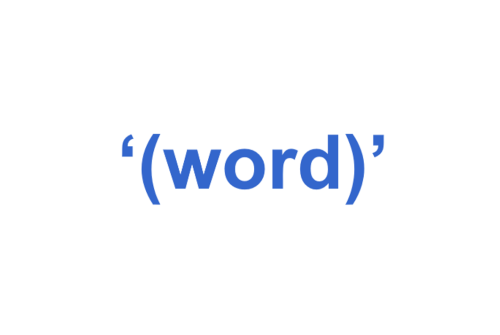Single Quotation Marks vs. Double Quotation Marks
Using quotation marks around a single word within a sentence, or even around a few minor words, can be tricky sometimes. For instance, does the word “thingamajig” in a sentence like this – “He showed us a thingamajig from his trip” -- just need single quotation marks around it, or full double quotation marks? Test your knowledge here.
In American English, what's the right way to use quotation marks for the word in the middle of this sentence: She sent her report to the team.
'report'
"report"
Both are equally correct.
The correct answer is option two -- "report". In American English, single quotation marks are used in place of double quotation marks in just two instances: (1) when a quotation occurs within another quotation -- "We started to walk through the doorway until a security guard yelled, 'Stop, you two!,' and we froze"; or (2) as a typographical style, when quotation marks are used in news headlines and other headings, Couple Says 'I Do' on National TV.
In British English, however, minor quoted manner, such as someone's nickname, is sometimes written with single quotation marks, which may be why some people think this is OK in American English. It isn't. It would be Walter "Walt" Disney, not Walter 'Walt' Disney, for such a construction.

